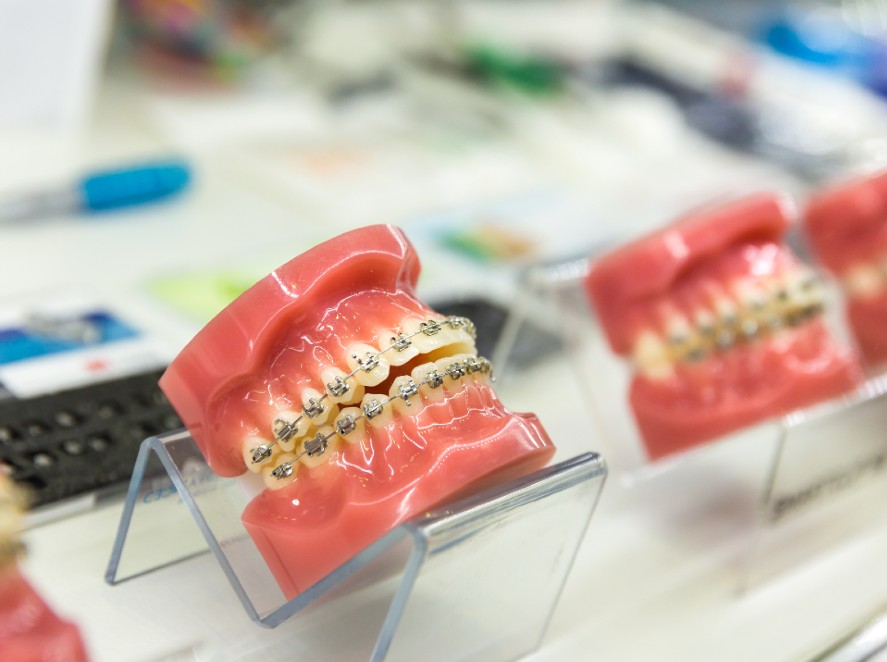What is Orthodontics?
Orthodontics is the area of dentistry including the diagnosis, prevention, and treatment of dental and facial irregularities. The technical term for these problems is “malocclusion” which means “bad bite”.
The full name of the specialty is “Orthodontics and Dentofacial Orthopedics”. The Orthodontics part refers to the alignment and the teeth and the fit of the bite while the Dentofacial Orthopedics part refers to the guidance of the growth of the jaws and face for facial balance and well-fitting jaws.
Just as there are specialties in medicine such as cardiology for your heart or dermatology for your skin, there are specialties in dentistry such as periodontics for your gums or orthodontics for your face and smile. For simplicity orthodontics is used to describe the specialty.

Who is a Specialist in Orthodontics?
An orthodontist is a dental specialist in the diagnosis, prevention and treatment of dental and facial irregularities.
This advanced training includes studies in genetics, embryology, human growth and development, and biophysics. Only dentists with this advanced specialty education can present themselves as a specialist in orthodontics.
The full description is actually “Specialist in Orthodontics and Dentofacial Orthopedics” but as this is rather cumbersome, Specialist in Orthodontics or simply Orthodontist is generally used.
Just as you trust a cardiologist for care of your heart or a dermatologist for care of your skin you can trust an orthodontist for care of your face and smile.
Benefits of Orthodontic Treatment
Many people consider orthodontic treatment because they see that the front teeth are crooked.
The orthodontist sees why the teeth are crooked and can provide treatment that will not only straighten the front teeth but also correct the underlying cause of the crooked teeth, improve the facial balance and provide a well-fitting, functional and stable bite.
Your bite is a complex biological system. Its components include up to 32 teeth, upper and lower jaws, gums, and multiple muscles that interact to make it all work. A well-fitting, functional and stable bite can improve biting, chewing and speaking and will decrease damage and wear to the teeth over a lifetime. Well aligned teeth are easier to clean and can help prevent gum disease, tooth decay, and loss of bone support.

Who Can Provide Orthodontic Treatment?
Orthodontic treatment can be provided by any licenced dentist.
Although orthodontic treatment can be provided by a dentist, only Orthodontists are certified dentists that have additional training in an accredited Orthodontic Specialty Program. These programs are a minimum of 2 to 3 years of intensive training on comprehensive analysis of the individual’s whole face and facial features, and their relationship to healthy teeth and jaws. This allows Orthodontists to provide detailed diagnosis and treatment planning of crowded teeth, bad bites, and various jaw-size and functional discrepancies.
Due to the complex nature of orthodontics, while Family (or General) Dentists are permitted to perform orthodontic procedures, they often limit the treatment that they provide to cases of minor teeth alignment and/or minor spacing, if providing any orthodontic treatment at all. This is similar to other dental specialties such as Prosthodontics (crown and bridge) or Endodontics (root canals) which General Dentists can provide treatment for these areas up to the limit of what they feel their non-specialized competence allows.
Do I Need A Referral?
You do not need a referral from a family (general) dentist in order to see an orthodontist.
Your family dentist is trained to notice problems with the development of your teeth and jaws. Normally your dentist would be responsible for detecting such problems and then referring you to an orthodontist if she or he does not feel competent to treat these problems herself or himself.
It is perfectly acceptable to obtain the name of an orthodontist from friends, family, co-workers or through online searches and contact the orthodontic office directly.
If you do not have a family dentist, an orthodontist will offer to refer you to one, as the basics of general dental health must be in place before orthodontic treatment should proceed.

What Age For Treatment?
It is recommended that an orthodontic screening be done for children by the age of seven.
As soon as it is noticed by the parents or the family dentist that something seems wrong with the way the face is developing or how the teeth are growing in, it is advisable to see an orthodontist.
Early treatment, also known as interceptive treatment, is usually done around the age of seven or eight. There are occasions, however, when earlier treatment is warranted so if something seems wrong with development please see an orthodontist right away.
When early or interceptive treatment is done there is a significant probability that a second phase of treatment will be required during adolescence once all the adult teeth have grown into the mouth. Early treatment is generally intended to intercept a problem in development and get the growth of the jaws and the eruption of the adult teeth on more of a normal path.




